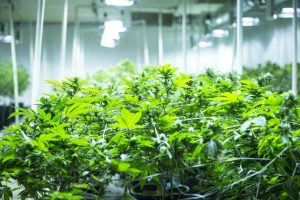 Following cannabis legalization in California, municipalities are beginning to face difficult decisions related to land use and planning. The challenge in siting industrial and residential uses, often in conflict, is not new for cities and their planners. But the new twist of cannabis growing and processing, treated as an industrial use in most cities, adds an added layer of complexity to land use decisions where lack of housing is also an issue.
Following cannabis legalization in California, municipalities are beginning to face difficult decisions related to land use and planning. The challenge in siting industrial and residential uses, often in conflict, is not new for cities and their planners. But the new twist of cannabis growing and processing, treated as an industrial use in most cities, adds an added layer of complexity to land use decisions where lack of housing is also an issue.
Such conflicts are brewing in Santa Rosa, Calif., the county seat of Sonoma County. Does the city allow a medical cannabis growing and processing facility to operate in a dwindling industrial area that is slated for residential redevelopment? The conflict highlights the issues that municipalities across the state will face in crafting land use regulations that promote the cannabis industry but also protect residential in-fill development.
Housing and in-fill proponents are concerned that approval of a cannabis project will encourage more cannabis uses in the area, which could make housing less likely and end up creating a cannabis-focused zone. The cannabis cultivation and processing company, on the other hand, alleges that the site is removed from residential areas, surrounded by other industrial uses, and in a building that is easy to secure, which makes it ideal for their operations.
The feud highlights the conflict, but also potential, for siting cannabis-related facilities in municipal zones. On the one hand, cannabis cultivation and processing facilities bring their own challenges to the table, including security and public relations concerns. On the other hand, in many ways cannabis operations are more compatible with residential uses than many historical industrial uses, which often create environmental problems and challenges for surrounding residents. An indoor cannabis grow operation, while perhaps unseemly to some people, does not likely present the air quality, groundwater contamination, or public safety risks that a metal processing plant, a refinery, or even a dry-cleaner or gas station does. In many ways, indoor growing operations are more akin to an agricultural use, which is generally considered more compatible with residential uses.
In incorporating cannabis operations into their land use plans, municipalities will have to decide whether industrial uses, now that they include cannabis cultivation and processing, can continue to be complementary to residential uses, or whether they will frustrate the development of housing.
 Gravel2Gavel Construction & Real Estate Law Blog
Gravel2Gavel Construction & Real Estate Law Blog


